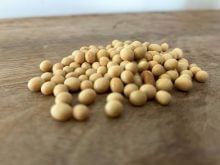If Jason Lauve is right, industrial hemp may become an everyday crop in the U.S. sooner than expected.
Lauve, founder and executive director of Hemp Cleans, a non-profit based in Colorado that lobbies for the regulation and cultivation of industrial hemp, said U.S. federal lawmakers are looking at legislation that would allow American farmers to grow hemp commercially.
“There’s a bill being brought (forward) next session… at the federal level that’s going to take the hemp regulatory system to the federal conversation,” Lauve said.
Read Also

Lending policy still focused on primary producers: FCC
Farm Credit Canada said it has not changed its business practices and remains committed to supporting all producers, after a report from an Ottawa-based media outlet claimed otherwise.
Thomas Massie, a Kentucky congressman said Bill 525 would amend the Controlled Substances Act to exclude industrial hemp from the definition of marijuana.
According to Vote Hemp, an industrial hemp lobby group, 50 members of the House of Representatives are co-sponsors of the Bill.
Lauve said prominent senators also support hemp legislative reform.
“We have people like Harry Reid and Mitch McConnell… to see that they’re engaged in this conversation, tells me that we’re going in the right direction,” said Lauve, who thinks Bill 525 could become law in 2015. “I think it’s actually going to be in the next year.”
The talk in Washington, D.C., may be encouraging to advocates like Lauve, but hemp production has moved well beyond the conversation stage in Colorado.
The U.S. Farm Bill, passed this winter, featured an amendment permitting the cultivation of hemp for research purposes. Agriculture departments and universities in states that have passed legislation allowing hemp production can initiate research projects.
Colorado universities are pursuing hemp research and the state’s agriculture department issued more than 100 registrations permitting farmers to grow hemp.
Veronica Carpio, a grower who also markets hemp coffee, said a diverse coalition supports Colorado’s nascent hemp industry.
In early October, Carpio and others hosted Colorado’s first annual Hemp Awards and Festival in Boulder, a networking event for growers and a showcase of hemp products.
“There were a few hundred people that showed up. It was a variety of people… from the middle class to the old country farmer. As well as the new generation of farmers, down the road,” she said, noting the event also attracted state politicians. “Two of the people running for governor showed up…. The (person) running for county commissioner came.”
In Kentucky, another state pursuing a hemp industry, university researchers harvested a crop at 15 locations.
Some Kentucky politicians including the state’s agriculture commissioner have publicly backed efforts to move forward on hemp production. McConnell and others have said hemp represents an opportunity to reinvigorate Kentucky’s ag sector.
While some politicians support hemp production in the U.S., several roadblocks remain.
“Seed is the key. We have to number one: make more seed. Number two, we have to acquire seed that we know what it is,” Capio said.
“A lot of (Colorado growers) don’t know what they have…. (We) have to be sure that we know what we’re working with.”
This spring, the U.S. Drug Enforcement Agency seized 120 kilograms of imported industrial hemp seed, from Italy, destined for research projects in Kentucky.
Kentucky’s Department of Agriculture filed a lawsuit claiming the seizure was illegal. The federal government relented and turned over the hemp seeds to Kentucky officials.
To make a point about importing hemp seed, a colleague of Lauve’s purchased 200 kg of seed in MacGregor, Man.
He attempted to transport it through the Hanboro, North Dakota, Port of Entry, south of Cartwright, Man, but U.S. Customs and Border Protection officers seized the hemp seed and federal officials have refused to release it.
Lauve, with the help of a lawyer and sympathetic politicians, has attempted to schedule a hearing with federal government regarding the seed. So far, he’s been unsuccessful.
“It’s typical of what’s going on with hemp in the United States. As soon as we try to address this with somebody they defer us to another telephone number… or different people.”
Lauve said the U.S. has to resolve issue of moving seed across borders, before industry can thrive.
“That’s not only an issue with Canada, but also an issue with the EU and the Asian countries,” he said. “This is an international conversation at this point.”
Hemp legislation at the state level:
• Eighteen states have removed barriers to industrial hemp production, including North Dakota and Montana
• Three states, Colorado, Kentucky and Vermont, had research plots in 2014, as permitted by the U.S. Farm Bill
• In 2014, hemp legislation has been introduced or carried over in 28 states
(Source: votehemp.com)















